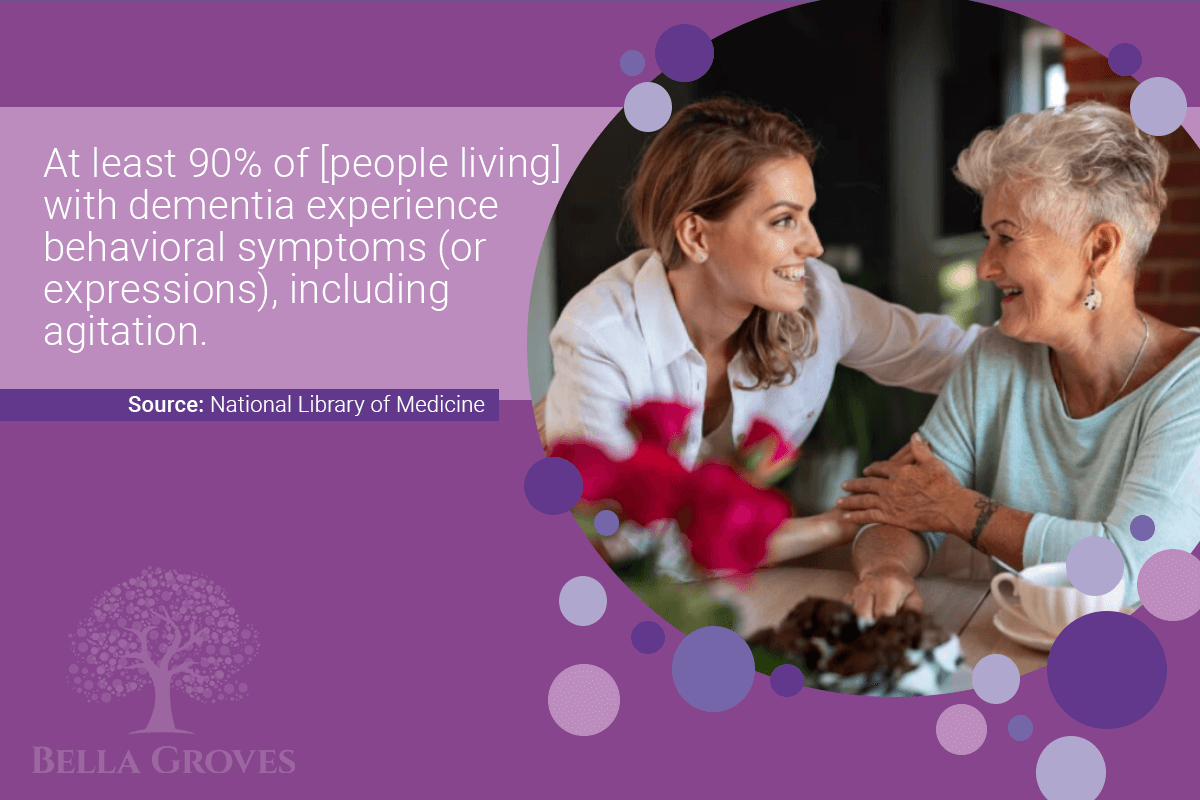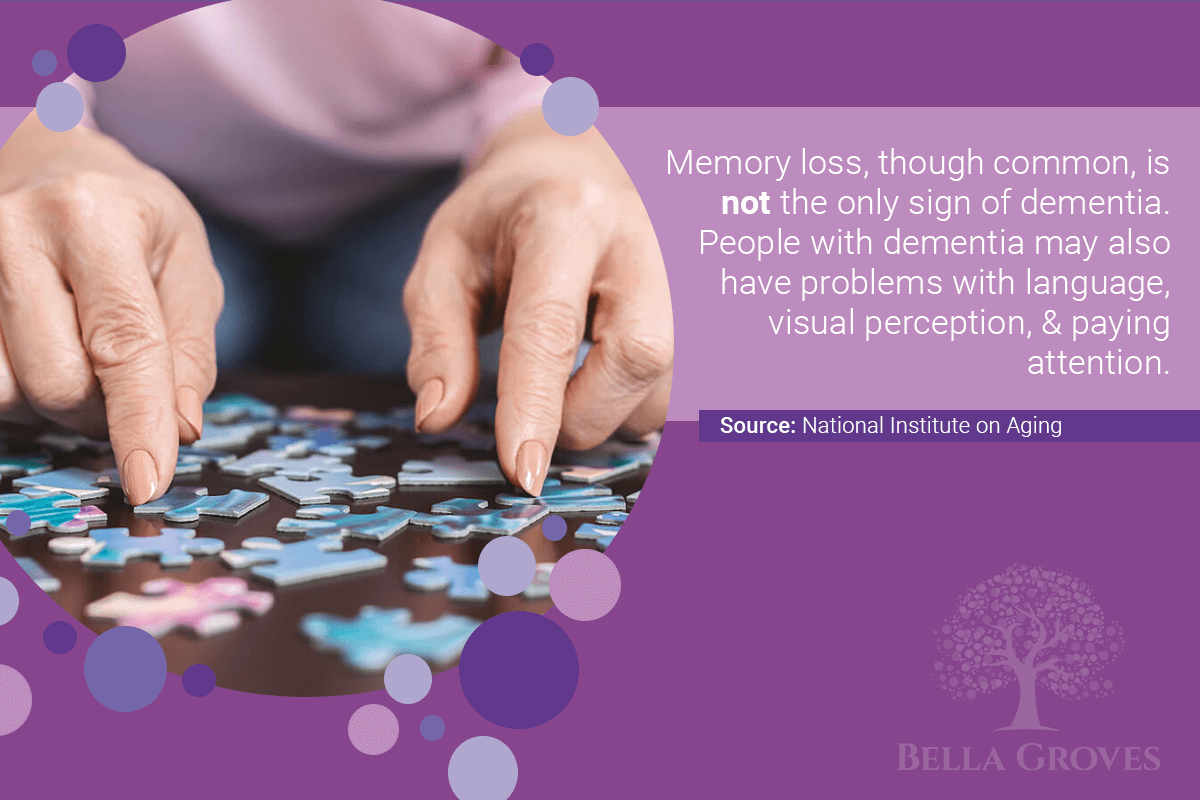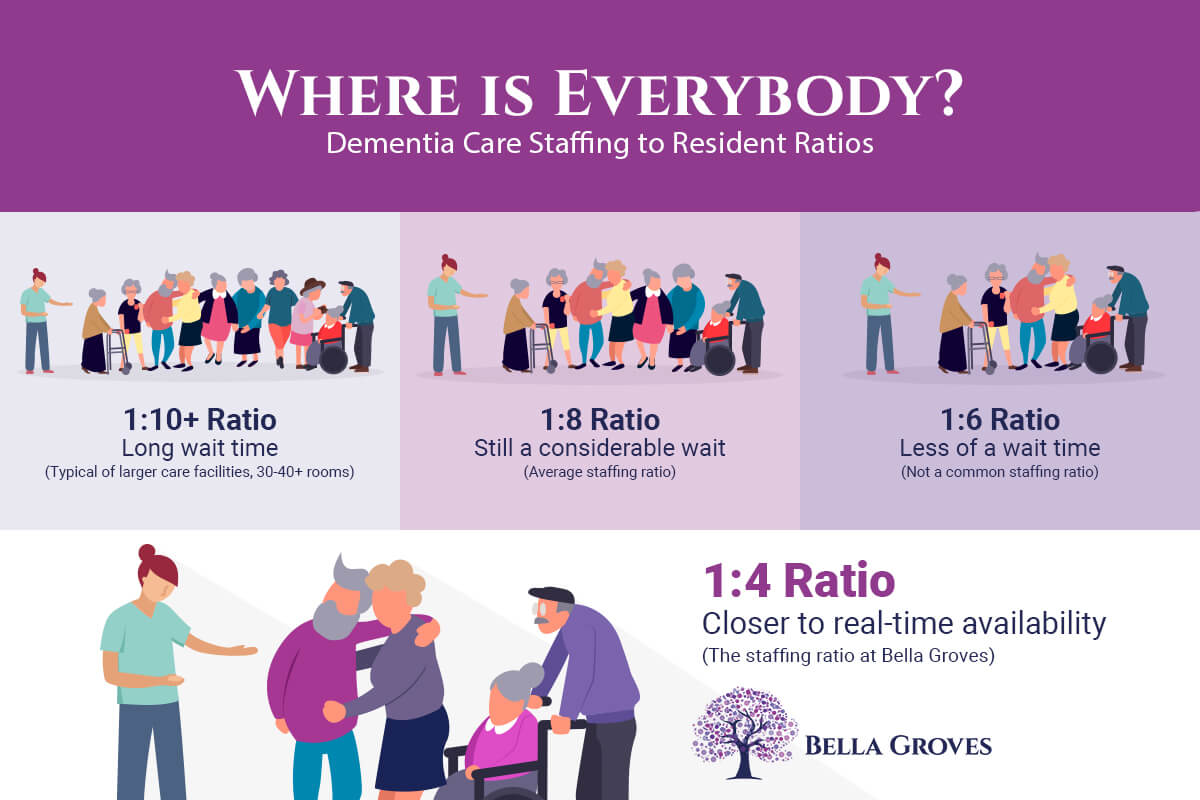
What You Need to Know About Agitation Associated with Dementia
While dementia care is a rewarding, loving experience, it is not without its challenges. For example, you may be enjoying a conversation or activity with your family member when suddenly their mood changes and they become angry or agitated.
In these moments, it is important to remember that a person living with dementia is not being “mean” or “unreasonable.” They are trying to communicate an unmet need. At Bella Groves, we call these types of actions expressions rather than behaviors. This is because the goal of these actions is communication. They are not a reflection of your family member’s character but rather an expression of an unmet need.
At Bella Groves, we provide educational tools and resources that address agitation and other dementia-related expressions and topics. Our mission is to join you on your dementia care journey, providing you and your family with the support and knowledge that you need to confidently provide the care your loved one needs.
What Causes This Agitation?
As the Alzheimer’s Association explains, “Anxiety and agitation may be caused by a number of different medical conditions, medication interactions or by any circumstances that worsen the person’s ability to think. Ultimately, the person [living] with dementia is biologically experiencing a profound loss of their ability to negotiate new information and stimulus. It is a direct result of the disease.”
Agitation can be triggered by numerous external and internal factors, including:
- Changes to a daily routine
- Travel, hospitalization, or the presence of unfamiliar people in the home
- Fear
- Insomnia and fatigue
- Lack of meaningful tasks and activities
- Lack of vitality
Agitation associated with dementia can lead to confusion, depression, or anger. This can occur suddenly, so it is essential to remain calm and positive in your reactions. By responding to agitation calmly and with empathy, you can ensure that the person living with dementia feels supported.
Responding to Expressions of Agitation
When someone with dementia shows signs of agitation, avoid reacting in the heat of the moment. For example, if you feel your own anger beginning to rise, it is best to excuse yourself from the room and return when you are more composed.
Stay Positive
Although your family member may be expressing agitation and anger, they are still relying on you to set the tone in your response. Imagine if you were trying to express frustration to someone – attempting to communicate an unmet need – and that person responded to you with an exasperated sigh, a cross look, or by speaking harshly to you. These responses would make the situation infinitely worse, exacerbating the problem.
Remember to stay positive. Attempt to take their point of view in the situation, even agreeing with them to calm the situation. For example, if they become agitated about a shirt that you picked out for them to wear, instead of demanding that they wear it, you might say, “You’re right, I am sure we can find a better shirt to wear today – would you like to help me pick it out?”
Redirect Sparingly
At Bella Groves, we teach care providers that redirecting has its benefits – but not always. If you try to redirect a person living with dementia without first understanding the root of the problem, you may end up making the problem worse.
Imagine that you are upset about something and trying to express your anger to a loved one. Instead of asking questions and connecting with you, they lead you to a window to look at birds, turn on the television, or simply switch topics without acknowledging your pain.
As a care partner to someone living with dementia, you have the responsibility of providing the empathy and understanding that they need in that moment. To continue supporting your family member as a complete person with valid concerns and needs.
Lead with Love
Providing care and support to a person living with dementia can be confusing and frustrating at times. Yet, despite the challenges, remember your core purpose – to provide a safe, loving environment in which your family member can experience a life of security, vitality, and joy.
Let that be your guidepost amid the challenges that may arise, including situations of agitation associated with dementia. You can lead with love by remaining calm, positive, and flexible with your family member. Establish helpful routines centered around healthy eating, exercise, cognitive skills, and sleep hygiene. And when you are confronted by agitation and angry expressions, remember why you are doing this in the first place.
–
Bella Groves is here to help you on your dementia care journey from day one. We provide varying levels of services and support so that families have the tools and confidence to work through the challenging times and create more moments of unconditional joy.


